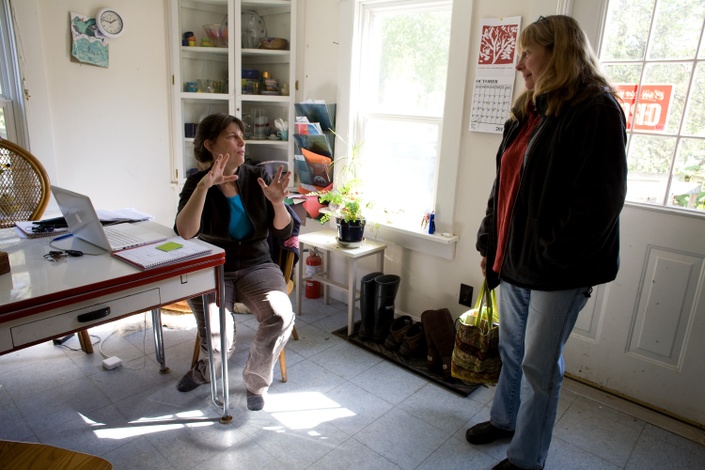
The Ecology of Care: October 9th Introductory Workshop and Gathering
Medicine, agriculture, money, and the quiet power of human and microbial communities
Enroll in Course
Do you want to change how we care for each other, and the ecosystems that we are nested within?
Are you looking for a community interested in figuring this out together?
Join us, October 9th, at 5:30 PM EDT (New York, USA)
I spent 9 years of weekends writing The Ecology of Care: Medicine, Agriculture, Money, and the Power of Human and Microbial Communities (between 2006 and 2015). Readers tell me it is more relevant than ever, and I agree--although I’d focus even more on water and a bit less on carbon if I were to rewrite it today.
In the first half of Chapter One, I describe my family's history in what I call "the sterile paradigm" of medicine which tends to separate life from its natural context: from lobotomies, to radiation, to an animal laboratory that I worked in during college. I contrast that with a more "fertile" approach to both medicine and agriculture--the way I practiced rural health care (as described in the Introduction and chapter one), as well as the way one of my patients practices farming.
In this workshop we will look at this issue through our own lives, using living systems frameworks to see where we get pulled into seeing animals, microbes, even people we disagree with, as "other", rather than an aspect of our own community.
The health of humans and ecosystems are declining even more rapidly than when I wrote it—a decline driven primarily by the extractive quest for profits. Most frightening to me are the complex neurological issues that are increasingly affecting our ability to think clearly about the issues we face. Yet it doesn’t have to be this way. It really doesn’t. There are places in the world that are addressing many of these issues together, with great success. It’s time to bring the promise and perspective of the Ecology of Care back into focus, worldwide.
Because of this, I’ve decided to offer chapters of the book on Substack, and two gatherings leading up to an international live discussion course related to the topic—so we can use a living-systems approach to find effective interventions where each of us lives and works.
This workshop and international gathering will be in the form of a discussion, using living systems frameworks, and will be based on Chapter One, part one. You may also want to read the Introduction to the book.
A longer course will start on October 16th. People who attended one of these initial gatherings will have priority for course registration if the course is overfilled. Members of the Land and Leadership Development Community can attend the gatherings and course for free.
You can watch the recording of our first gathering as well, which is included in the curriculum here when you sign up.
Your Instructor
Didi Pershouse is well known as an innovative international educator both in-person and online. She is the founder of the Land and Leadership Initiative. Her facilitator's guide Understanding Soil Health and Watershed Function, is used in over 60 countries.
She became deeply involved in the intersection of food systems and health systems while providing rural health care for two decades at The Center for Sustainable Medicine, and wrote The Ecology of Care: Medicine, Agriculture, Money, and the Quiet Power of Human and Microbial Communities.
Currently she is writing a field training manual for the UN-FAO Farmer Field School Program and the Andhra Pradesh Community Managed Natural Farming Initiative in India, involving over 800,000 smallholder farmers. She was a contributing author to The Climate Emergency: How Africa Can Survive and Thrive; Climate Change and Creation Care; and Health in the Anthropocene. She was one of five speakers at the United Nations-FAO World Soil Day in 2017.
She serves on the Planning Commission for her town, is a board supervisor for the White River Natural Resources Conservation District, and is on the board of directors of the Soil Carbon Coalition and the Vermont Healthy Soils Coalition. While serving on the state appointed Payment for Ecosystem Services and Soil Health Working Group, she helped to reorient the program back to its public roots. She led a successful effort to conserve the Zebedee Headwaters Wetland while serving as a Vermont Conservation Commissioner.